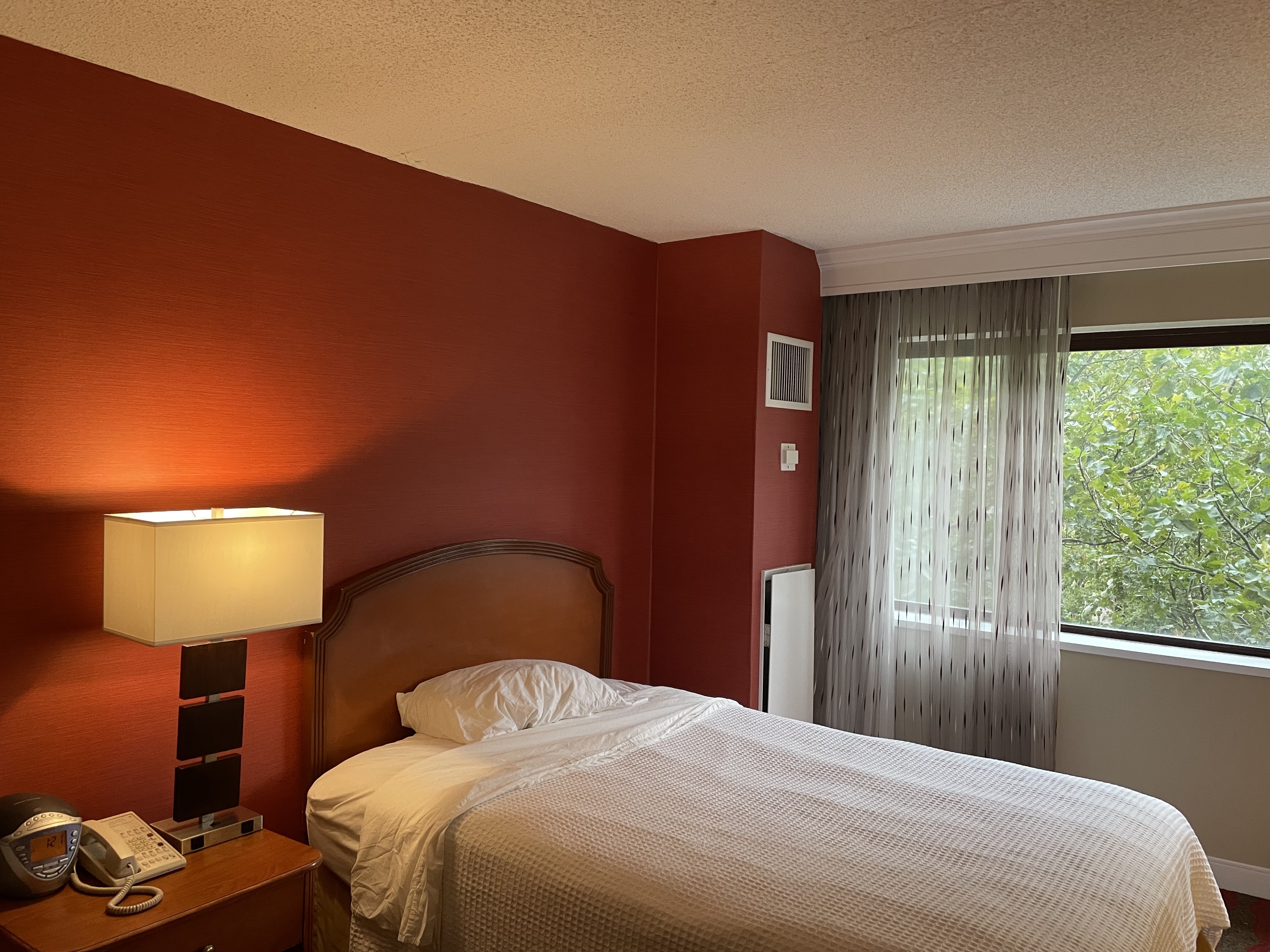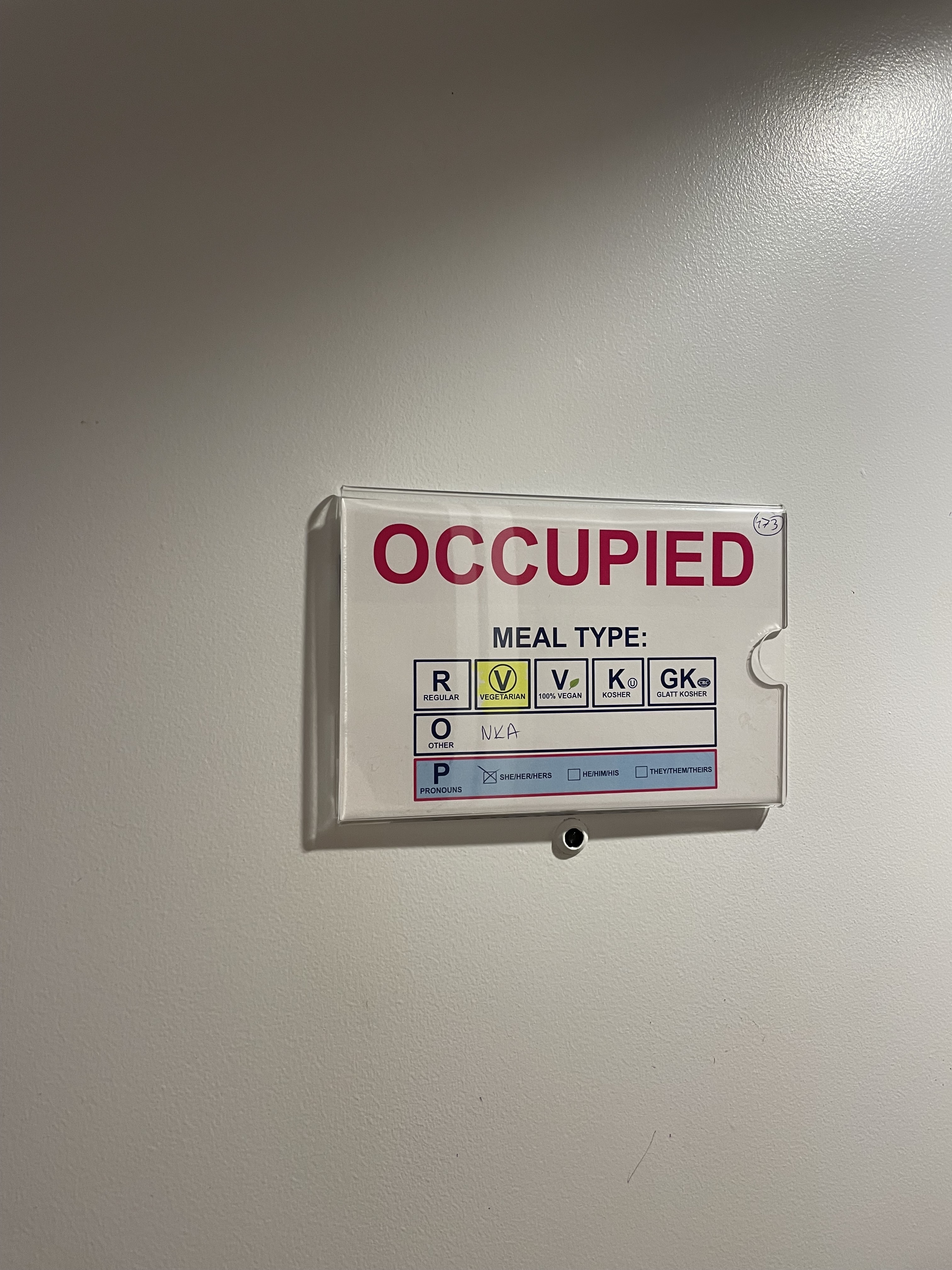Like many sordid stories, it all started with a beer. Three 24-year-old New Yorkers walked into an East Village bar. It was another beautiful New York City evening, the kind where you wouldn’t think twice about taking a sip out of your friends’ glass. We were all vaccinated and full of optimism. The delta variant had other plans.
The next morning, I was at Jacob Riis beach when I got a text from a friend I’d been with the night before saying she had just tested positive for COVID-19. The next day, I suddenly felt congested and had trouble getting out of bed. I decided to get tested and try to isolate as much as I could right away.
Upon receiving my positive test, I was scared. I live with two roommates in a small space, and I wasn’t sure how I could keep them safe until I remembered that my friend had stayed in an isolation hotel when he had COVID-19. I found a phone number online and called it. A hospital employee answered, and then I answered a series of questions that took about 30 minutes. Yes, I had headaches, yes, I had shortness of breath, yes, I was exhausted. After that phone call, they told me I’d hear from them within 24 hours, and I received another call 15 minutes later letting me know where I would be staying: the LaGuardia Plaza Hotel.
After warning my roommates that I would need to come back in to pack, I rushed into my room and did my best to pack 10 days worth of lounge clothes and entertainment in as little time as possible. Sidenote – packing five books for 10 days was not necessary, COVID-19 left me with the mental capacity of a goldfish.
Feeling like the Eloise of airport hotels, I got in the cab called for me by the city and headed into 10 days of isolation. New York City Health & Hospitals partnered with Curb, the taxi hailing app, to inform the drivers of who they are picking up so that the cars are properly equipped with plastic screens between the infected person and the driver.
Arriving at the LaGuardia Plaza Hotel, I somehow felt underdressed in a marble space that is normally populated by professionals spending a night there on business in the city but is now entirely staffed by hospital personnel. It felt almost apocalyptic to walk into the cavernous entryway and be greeted by a nurse in head-to-toe personal protective equipment.

My bags were searched, and then I was taken to my room. Room 473, which also became my name for the next 10 days, was equipped with two full beds, a TV, a desk, a spacious bathroom and a large window through which I could gaze longingly upon the outside world.
They do not allow any alcohol, cigarettes or marijuana in the rooms, and later in my stay, I overheard other guests joking that this felt like being in “the program.” The irony of catching COVID-19 from sharing a beer and then being forced into sobriety for 10 days was not lost on me. Guests who smoke cigarettes or weed are allowed to smoke during the three 15-minute breaks when we were taken outside every day. The nurses held on to all the contraband at all other times.
The worst part of my quarantine was the very beginning when I was the most sick, and I realized I would be stuck inside the same hotel room for 10 days without any in-person contact with my loved ones. It also caused me to panic, knowing that I wouldn’t have control over when I got to go outside. The outdoor breaks were at 10 a.m., 3 p.m. and 10 p.m. If you missed the knock on your door, you missed the outdoor break altogether. My first full day, I slept through the afternoon outdoor break and panicked realizing that I wouldn’t be able to go outside for seven more hours.
The first several days passed in a bit of a haze. COVID-19 exhausted me, and I had trouble staying awake for very long or focusing on anything. I was coughing a lot and was extremely congested. Both symptoms resided after a day or two, but after that, I lost the ability to taste and smell.

The tight schedule the nurses kept helped me to not completely lose my mind. Every day started at 7 a.m. when nurses would knock on the door to deliver breakfast. Breakfast usually consisted of a croissant, orange juice, a piece of fruit and coffee which I always let go cold because I went back to sleep. Being woken up at 7 a.m. when inflicted with a disease that causes exhaustion was not ideal, but the nurses were unfailingly kind. We then had our vitals checked at 9 a.m. and were taken outside at 10 a.m. At around noon, lunch was delivered, and we were left alone until 3 p.m. when the second outdoor break came around. Dinner was at 6 p.m., and my vitals were checked again at 9 p.m. before the last outdoor break at 10 p.m. After a 10-day stay there, I can safely say that I have broken the Guinness World Record for the number of laps walked around a hotel roundabout.
We were also checked on at 1 a.m. and 5 a.m. while we were asleep. The locks on the doors to the rooms had been removed, which originally freaked me out. Everyone could be checked on, and if there was an emergency, a key didn’t have to be procured before entering the room. Hallways were staffed by nurses 24/7, and nobody was ever roaming in them without the nurses’ knowledge or permission.
The outdoor breaks were the only time I saw other hotel guests. According to the nurse I asked, the 383-room hotel was nearly full of patients, but the nurses ran such a tight ship that the hallways were always practically empty except for breaks. We were brought down for breaks by floor. After spending 10 days gathering at the floor elevator together, going down the elevator in groups of three and being paraded outside all together by a nurse, our floor started to feel like our team. Go fourth floor! Everyone had a sense of humor about the fact that we all had the coronavirus, and elevator rides consisted of chatter about whether we could smell or taste that day.
Speaking of taste, the hospital-style food was not as bad as you might think. I honestly think I might buy pudding and jello every time I go grocery shopping from now on. The meals were filling, and while I couldn’t taste for half of my time there, I have no complaints.
It pains me to admit that I spent every night in quarantine watching Harry Potter on FaceTime with my friend who had contracted COVID-19 at the same time as me. But hey, you’ve got to do what you’ve got to do. It only took a day or so to adapt to the hotel schedule, and between working, napping, doing puzzles and watching TV, it wasn’t so hard to pass the time.
The day before I left, I got a call from an in-building psychiatrist. She asked about whether I had enjoyed my stay, whether I had felt safe and whether the nurses had been professional throughout. To all of which I emphatically answered “yes.” On my last day, I was oddly a little sad to leave my COVID-19 den but also thrilled to pick out my free Coach purse given to patients at the end of their stay (the brand donated bags to the hospital.)
I feel lucky to have been taken care of for free during what could have been a very scary time by a kind and helpful nursing staff. I know that many people have not had the relatively easy battle with the coronavirus that I did, and I hope all New Yorkers that need it can take advantage of the isolation hotel program.
If you live in New York City and have tested positive for COVID-19, or are living with someone who has tested positive for COVID-19, call 212-268-4319 to book a room.


